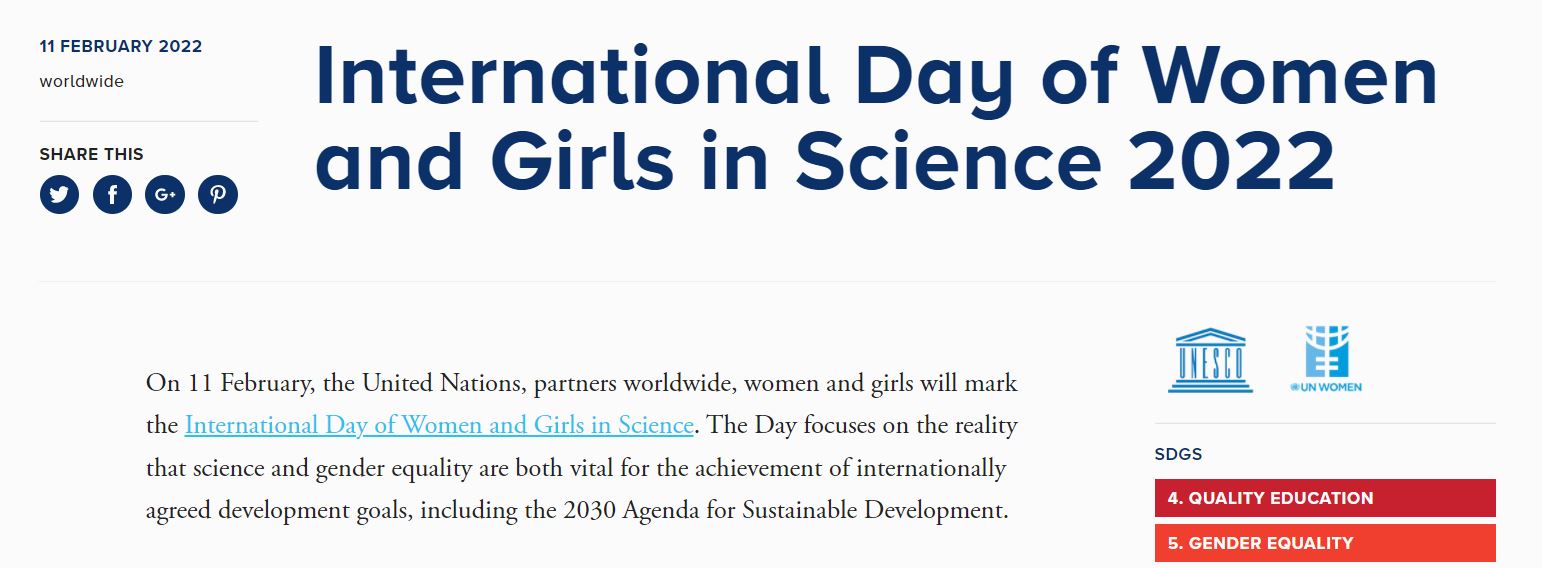A wide ranging update for you this week!
Parliamentary News
Chancellor Rishi Sunak is due to deliver his spring statement. Wonkhe predict: tough times are coming for a sector that almost certainly won’t feature in any list of political priorities. For students, thanks to the way these things have been historically calculated, inflation-linked rises to student maintenance will literally come too little, too late – eating into the buffer that funds participation in student life beyond the bare minimum…For universities in England, the announced fee cap freeze, coupled with rising inflation and energy costs, is a serious problem – and there’s little prospect of funding rising in line with inflation in the devolved nations. As providers grow student numbers just to stand still, students and staff will find worsening pay and conditions, and that resources are spread more thinly.
Of course, Wonkhe also have a blog: If the numbers don’t add up, something has to give. With inflation rocketing, cuts are coming. Jim Dickinson reviews the protection for students when the money isn’t there for promises to be met.
Ukraine: HE & FE Minister Michelle Donelan has called upon the HE taskforce to address the issues arising from the Russian invasion of Ukraine.
Skills and Post-16 Education Bill: The Skills and Post-16 Education Bill has entered ‘ping pong’ meaning it is at the final stages of its legislative journey. The Lords and Commons bat the Bill back and forth between the two houses as they thrash out the final amendments of details within the Bill. The next sessions will take place on 24 and 28 March so we will see the final form of the Bill shortly.
Research
R&D Allocations: The Government has confirmed the allocations of the 2022-25 £39.8bn research and development budget. Stated aims are to deliver the Innovation Strategy and increase total R&D investment to 2.4% of GDP by 2027. Key points taken from the Government’s news story:
- R&D spending set to increase by £5bn to £20bn per annum by 2024-2025 – a 33% increase in spending over the current parliament by 2024-2025.
- A significant proportion of the budget has been allocated to UKRI (£25bn across the next 3 years, reaching over £8.8bn in 2024-2025). This includes an increase in funding for core Innovate UK programmes by 66% to £1.1bn in 2024-2025.
- Full funding for EU programmes is included. £6.8bn allocated to support the UK’s association with Horizon Europe, Euratom Research & Training, and Fusion for Energy (if the UK is unable to associate to Horizon Europe, the funding allocated to Horizon association will go to UK government R&D programmes, including those to support new international partnerships).
- BEIS programmes will receive over £11.5bn over the next 3 years, of which £475m is earmarked for the new Advanced Research and Invention Agency (ARIA), £49m is allocated to the Government Office for Science (GOS), and £628m will go toward the Nuclear Decommission Authority (NDA).
In the Levelling Up White Paper, the Government committed to increasing public R&D investment outside the greater South East by at least a third over the Spending Review period, and for these regions to receive at least 55% of BEIS domestic R&D budget by 2024-2025. Also the £100 investment in three new Innovation Accelerators (as we mentioned last week) through the pilots in Greater Manchester, the West Midlands, and the Glasgow City-Region.
Business Secretary Kwasi Kwarteng stated: For too long, R&D spending in the UK has trailed behind our neighbours – and in this country, science and business have existed in separate spheres. I am adamant that this must change. Now is the moment to unleash British science, technology and innovation to rise to the challenges of the 21st century…My department’s £39.8 billion R&D budget – the largest ever R&D budget committed so far – will be deployed and specifically targeted to strengthen Britain’s comparative advantages, supporting the best ideas to become the best commercial innovations, and securing the UK’s position as a science superpower.
On Horizon Europe the Russell Group commented: We are…reassured by the confirmation that any funding required for association to Horizon Europe or an alternative will come from a separate ringfenced budget rather than the central allocation to UKRI and the national academies, which will help protect critical funding for the UK’s research base and provide researchers and academics with the long term stability they need.
UKRI Strategy: UKRI published their first five-year strategy. It outlines how UKRI will support the UK’s world class research and innovation system, fuel an innovation-led economy and society, and drive up prosperity across the UK. The strategy sets out how UKRI will invest in people, places and ideas and break down barriers between disciplines and sectors to tackle current and future challenges – all supporting the Government’s ambitions for the UK as a global leader in research and innovation. UKRI has proposed four principles for change:
- Diversity– we will support the diverse people, places and ideas needed for a creative and dynamic system
- Connectivity –we will build connectivity and break down silos across the system, nationally and globally
- Resilience –we will increase the agility and responsiveness of the system
- Engagement –we will help to embed research and innovation in our society and economy.
Aspiring to:
- People and careers –making the UK the top destination for talented people and teams
- Places –securing the UK’s position as a globally leading research and innovation nation with outstanding institutions, infrastructures, sectors, and clusters across the breadth of the UK
- Ideas –advancing the frontiers of human knowledge and innovation by enabling the UK to seize opportunities from emerging research trends, multidisciplinary approaches and new concepts and markets
- Innovation –delivering the government’s vision for the UK as an innovation nation, through concerted action of Innovate UK and wider UKRI
- Impacts –focusing the UK’s world class science and innovation to target global and national challenges, create and exploit tomorrow’s technologies, and build the high-growth business sectors of the future
- Underpinned by a strong organisation – making UKRI the most efficient, effective, and agile organisation it can be.
Delivery will be outlined through strategic delivery plans for each of UKRI’s constituent councils and published later this year.
UKRI Chief Executive Professor Dame Ottoline Leyser said: Throughout the pandemic, we have seen the transformative power of the UK’s exceptional research and innovation system to navigate an uncertain and fast-changing world. As we emerge from the pandemic, we have a unique opportunity to empower our economy and our society, putting research and innovation at their heart. UKRI’s strategy sets out our five-year vision for how we will catalyse this transformation, investing in people, places, and ideas and connecting them up to turn the challenges of the 21st century into opportunities for all.
Quick News:
- Science and Technology Strategy: The Lords Science and Technology Committee ran a session on delivering a UK science and technology strategy. It focused on the role of the new Cabinet Office group, its purpose and its long-term goals, as well as science diplomacy, engagement and national strategies going forwards. The committee also heard of approaches to international science diplomacy. A summary of the main content in the session is available here. And Wonkhe provide an even shorter synopsis: The House of Lords Science and Technology Committee heard evidence on the introduction of a UK science and technology strategy, including from Andrew McCosh, director of the Office for Science and Technology Strategy. McCosh said that funding routes will not be changed for research academics where they are working well, but that the new office will support improvements. In response, Lord Krebs wondered why the government is creating further bureaucratic structures. McCosh also noted that the new National Science and Technology Council will provide a governmental steer in direction to UKRI, but it will remain UKRI’s responsibility to allocate research funding. You can watchthe full session on Parliament TV.
- Diversity in STEM: The Commons Science and Technology Select Committee heard evidence for its inquiry into Diversity and Inclusion in STEM. Summary here. The session covered: funding and representation, Resume for Research, UKRI and representation, UKRI improvements, short term contracts, diversification, and the idea of a Universal Basic Research Income.
- Horizon Europe funding guarantee – extended: The Government and UKRI also announced an extension to the financial safety net support provided to Horizon Europe applicants(originally launched in November 2021). It ensures that eligible successful UK applicants for grant awards will continue to be guaranteed funding for awards expected to be signed by the end of December 2022, while efforts continue to associate to Horizon Europe. The funding will be delivered by UKRI and details of the scope and terms of the extension to the guarantee will be made available on their website. You can read the Minister’s announcement letter here. The Minister, George Freeman, commented: Since becoming Science Minister last year, my priority has been supporting the UK’s world-class researchers, which is why we have been so determined in our efforts to associate to Horizon Europe. Whilst it is disappointing that our association is still held up by the EU, our plans to develop ambitious alternative measures are well underway and I’m pleased Horizon Europe applicants in the UK will still be able to access funding through our guarantee, meaning that researchers will be well-supported whatever the outcome.
Blogs:
- Wonkhe – Universities are committed to improving research culture, but the work needs to be sustained.
- Research Professional: War in Ukraine severs research links
Parliamentary Questions:
- The Life Sciences Innovative Manufacturing Fund seeks to leverage £300 million of gross private sector manufacturing investment by March 2025.
- UK Official Development Assistance received by Belarus in 2020-21 including R&D
Student experience and outcomes
The OfS have launched a review of blended learning in universities. It doesn’t say how they will conduct the review – or which universities they will be reviewing.
- While most students have now returned to in-person teaching, many universities continue to deliver some elements of their courses (for example, lectures for large groups of students) online. There are no guidelines in place which prevent or restrict any kind of in-person teaching.
- The review will consider how some universities are delivering blended learning. A report in summer 2022 will set out where approaches represent high quality teaching and learning, as well as approaches that are likely to fall short of the OfS’s requirements.
- Professor Susan Orr has been appointed lead reviewer. Professor Orr is currently Pro Vice Chancellor: Learning and Teaching at York St John University and is the incoming Pro Vice Chancellor: Education at De Montfort University. A panel of expert academic reviewers will be appointed to work with Professor Orr to examine the way different universities and colleges are delivering blended learning.
- Commenting, Nicola Dandridge, chief executive of the Office for Students, said:
- ‘With the end of government coronavirus restrictions, students are back on campus and able to enjoy in-person teaching. There are clear benefits to in-person learning and where students have been promised face-to-face teaching it should be provided. This return to relative normality is important, and comes after an enormously challenging two years for students and staff. It remains very important that universities and colleges are clear with their students and their applicants about how courses will be delivered. If universities decide that certain elements are to remain online, this should be made explicit. Whether online or face to face, the quality must be good, and feedback from students taken into account.
- ‘Our review of blended learning will examine the approaches universities and colleges are taking. There are many ways for blended courses to be successfully delivered and it will be important to harness the lessons learned by the shift to online learning during the pandemic. We are, however, concerned to ensure that quality is maintained, and through this review we want to gain a deeper understanding of whether – and why – universities and colleges propose to keep certain elements online.
- ‘A report following the review will describe the approaches being taken by universities and colleges and give examples where blended approaches are high quality, as well as those that may not meet our regulatory requirements, providing additional information for universities and colleges, as well as students and applicants.’
On Wonkhe, David Kernohan has a take:
Running it through – in order of unlikeliness – there are three things that Orr could conclude:
- Blended learning is great, and the complaints are largely without foundation
- Blended learning is in routine use at a marked detriment to the student experience in order to save universities money.
- There is a mixed picture on blended learning – there is a lot of great practice but some provision lags behind, and a mixture of enhancement and enforcement needs to be deployed to drive up quality.
None of these endpoints benefit either the Office for Students or the government.
In that context, the Higher Education Statistics Agency (HESA) has published the latest provider-level statistics of higher education students not continuing into the 2020 to 2021 academic year.
- For full-time first degree entrants, we see higher rates among mature students than young students.
- Non-continuation rates among young, and mature, full-time first degree students have observed a further decrease in the percentage of 2019/20 entrants not continuing in HE following the small decrease observed for 2018/19 entrants.
- With regards to other undergraduate entrants, the non-continuation rate for young, full-time students in the UK has seen a general decrease over the last few years, while for mature entrants there have been fluctuations in the rate.
- Non-continuation rates two years after entry for part-time first degree entrants are slightly higher among those aged 30 and under than for those aged over 30.
- Between 2012/13 and 2018/19 the proportion of full-time first degree students expected to qualify with a degree from the HE provider at which they started in the UK was showing a slight decline. In 2019/20 the proportion expected to qualify has increased again.
The Student Loans Company (SLC) has published the latest statistics on early-in-year student withdrawal notifications provided by HE providers for the purpose of student finance from 2018/19 to 2021/22 (Feb 2022).
Research Professional cover the stories.
OfS consultations on regulatory graduate outcomes and the TEF
We wrote about these three very significant consultations in our update on 21st January, and they closed this week. As you will recall, this includes the consultation about calculating metrics, which is linked to the consultation on new licence condition B3 (the one with the minimum levels of outcomes).
The UUK responses talk about proportionality. On B3, they raise concerns about outcomes being seen as the only measure of quality, and about how the new rules will be applied, in selecting universities to look at more closely, and specifically by looking at context. They ask in particular that universities should not face an intervention where they are within their benchmark and that value add, student voice and geographical context should be considered alongside the actual metrics.
Jim Dickinson points out, though:
- It’s one of the many moments where you can’t quite work out whether UUK knows that the key decision has already been taken here or if it genuinely thinks it will change OfS’ mind – it certainly paints a picture of the sector being stuck on the left-hand side of the Kubler-Ross grief curve.
- Either way, we can pretty much guarantee that in a couple of months an OfS response will tell the sector that it’s wrong in principle, and anyway hasn’t read the proposals – which to be fair when taken in their totality along with the rest of the B conditions, do measure quality both quantitatively (via outcomes) and qualitatively (through proposals the sector isn’t too keen on ether, with a kind of be careful what you wish for vibe).
- … It’s the threat of monitoring – with the odd provider made an example of – that should be causing people to both work on improving outcomes where the red lights are, and having “contextual” action plans ready that show that work off if OfS phones you up in September.
There was a separate consultation on the TEF (and the metrics one is related to this too).
On the TEF, UUK disagree with the name of the fourth category “requires improvement”. As we have said in many TEF consultation responses, they disagree with “gold, silver and bronze” too and would like to redefine them. They don’t think subcontracted provision should be included and they strongly disagree with the proposed timeline, asking for a Spring submission.
- On Wonkhe: OfS’ proposals on quality outcomes are mostly rational on paper – but the regulator needs to win the confidence of the sector, argues GuildHE deputy chief executive Alex Bols.
- Also on Wonkhe: Jim Dickinson takes a look through the responses and considers what the sector is saying.
International student experience
The OfS has published an insight brief on international students. It acknowledges that information about international students is incomplete and announces a call for evidence to “identify effective practice in ensuring that international students can integrate and receive a fulfilling experience in the UK”. Using the data that they do have, the brief talks about numbers and fees as a proportion of total income.
The brief talks about NSS feedback (international students are generally more positive than home students) and the issues faced by international students, particularly when travel was restricted in the pandemic.
The OfS are concerned, however, that they don’t have enough data about international students, and for that reason they have launched a call for evidence on international student experience. They are looking for responses on initiatives linked to three themes. They will filter the submissions to identify case studies to feature in a report.
The themes they have identified are:
- work to prevent and address harassment and sexual misconduct
- how responding to the coronavirus pandemic has shaped practice in supporting international students to adapt to and integrate with UK higher education
- work to ensure the accessibility and effectiveness of wellbeing and support services (such as student services, mental health provision, etc.).
While responding on those themes, institutions can also consider the relationship of their evidence to the following:
- advancing equality of opportunity for students with one or more protected characteristic
- partnership with international students
- intervention that may also benefit home (UK-domiciled) students.
Commission on Race and Ethnic Disparities
In April last year Dr Tony Sewell published the findings of the Commission on Race and Ethnic Disparities. The Commission’s findings were criticised and equalities campaigners accused the group of cherry-picking data and pushing propaganda, while the United Nations described it as attempt to normalise white supremacy. Dr Sewell, who lead the inquiry in the wake of the 2020 Black Lives Matter demonstrations, has recently had his honorary degree from the University of Nottingham withdrawn amidst the controversy. This week the Government published its response to the report and findings of the Commission through the policy paper: Inclusive Britain: government response to the Commission on Race and Ethnic Disparities.
The Guardian report under the header: Denial of structural racism – Ministers will drop the term black, Asian and minority ethnic (BAME), more closely scrutinise police stop and search, and draft a model history curriculum to teach Britain’s “complex” past in response to the Sewell report on racial disparities. Launched as a response to the Black Lives Matter protests, the report caused controversy when it was published last year for broadly rejecting the idea of institutional racism in the UK. In the government’s response, called Inclusive Britain, ministers acknowledge racism exists but stress the importance of other factors. Taiwo Owatemi, Labour’s shadow equalities minister, said the report still “agrees with the original report’s denial of structural racism. Boris Johnson’s Conservatives have once again failed to deliver meaningful action.” The report sets out a long list of policies, some new and others already in place.
Relevant key action points follow below. There is nothing new in the HE elements.
Educational success for all communities
- Action 29: To drive up levels of attainment for under-performing ethnic groups, the Department for Education (DfE) will carry out a programme of analysis in early 2022 to understand pupil attainment and investigate whether there are any specific findings and implications for different ethnic groups to tackle disparities.
- Action 30: The DfE and the Race Disparity Unit (RDU) will investigate the strategies used by the multi-academy trusts who are most successful at bridging achievement gaps for different ethnic groups and raising overall life chances. The lessons learnt will be published in 2022 and will help drive up standards for all pupils.
- Action 31: The DfE will investigate the publication of additional data on the academic performance of ethnic groups alongside other critical factors relating to social mobility and progress at school level, in post-18 education and employment after education by the end of 2022.
- Action 32: The schools white paper in spring 2022 will look at ways we can target interventions in areas and schools of entrenched underperformance.
Targeted funding: Action 34: To maximise the benefits of the pupil premium for disadvantaged pupils, DfE amended the pupil premium conditions of grant for the 2021-2022 academic year to require all schools to use their funding on evidence-based approaches. To the extent possible, DfE will investigate the scale of these benefits.
Higher education
- Action 43: To empower pupils to make more informed choices about their studies, the DfE will ensure that Higher Education Institutions support disadvantaged students before they apply for university places.
- Action 44: The DfE will work with UCAS and other sector groups to make available both advertised and actual entry requirements for courses, including historic entry grades so that disadvantaged students have the information they need to apply to university on a fair playing field.
- Action 45: Higher education providers will help schools drive up standards so that disadvantaged students obtain better qualifications, have more options, and can choose an ambitious path that is right for them.
- Action 46: Higher education providers will revise and resubmit their Access and Participation plans with a new focus on delivering real social mobility, ensuring students are able to make the right choices, accessing and succeeding on high quality courses, which are valued by employers and lead to good graduate employment.
- Action 47: To improve careers guidance for all pupils in state-funded secondary education, the DfE will extend the current statutory duty on schools to secure independent careers guidance to pupils throughout their secondary education.
- Action 52: The government is consulting on means to incentivise high quality provision and ensure all students enter pathways on which they can excel and achieve the best possible outcomes, including exploring the case for low-level minimum eligibility requirements to access higher education student finance and the possible case for proportionate student number controls.
- Action 53: To help disadvantaged students to choose the right courses for them and to boost their employment prospects, the Social Mobility Commission will seek to improve the information available to students about the labour market value of qualifications and, where possible, the impact of those qualifications on social mobility.
Innovation: Action 56: To equip entrepreneurs from underrepresented backgrounds with the skills they need to build successful businesses, BEIS is supporting HSBC to develop and launch its pilot for a competition-based, entrepreneur support programme in spring 2022. The programme, which will be run in partnership with UK universities, will equip entrepreneurs with the skills they need for years to come.
Apprenticeships: Action 48: To increase the numbers of young ethnic minorities in apprenticeships, the DfE is, since November 2021, working with the Department for Work and Pensions (DWP) and partner bodies and employers to engage directly with young people across the country to promote apprenticeships. This will use a range of mechanisms to attract more ethnic minority starts identified in the Commission’s report, such as events in schools with strong minority representation, relatable role models, employer testimonies, data on potential earnings and career progression. It will also explore the impact of factors that influence a young persons’ career choices.
Alternative provision (AP)
- Action 37: The DfE will launch a £30 million, 3-year programme to set up new SAFE (Support, Attend, Fulfil and Exceed) taskforces led by mainstream schools to deliver evidence-based interventions for those most at risk of becoming involved in serious violent crime. These will run in 10 serious violence hotspots from early 2022 targeted at young people at risk of dropping out of school: reducing truancy, improving behaviour and reducing the risk of NEET (those not in education, employment or training).
- Action 38: DfE will invest £15 million in a 2 year-programme to pilot the impact of co-locating full-time specialists in Alternative Provision in the top 22 serious violence hotspots.
Teaching an inclusive curriculum
- Action 57: To help pupils understand the intertwined nature of British and global history, and their own place within it, the DfE will work with history curriculum experts, historians and school leaders to develop a Model History curriculum by 2024 that will stand as an exemplar for a knowledge-rich, coherent approach to the teaching of history. The Model History Curriculumwill support high-quality teaching and help teachers and schools to develop their own school curriculum fully using the flexibility and freedom of the history national curriculum and the breadth and depth of content it includes. The development of model, knowledge-rich curriculums continues the path of reform the government started in 2010.
- Action 58: The DfE will actively seek out and signpost to schools suggested high-quality resources to support teaching all-year round on black history in readiness for Black History Month October 2022. This will help support schools to share the multiple, nuanced stories of the contributions made by different groups that have made this country the one it is today.
Further Education: Action 63: The DfE will encourage governing bodies to be more reflective of the school communities they serve and will recommend that schools collect and publish board diversity data at a local level. The DfE will also update the Further Education Governance Guide in spring 2022 to include how to remove barriers to representation, widen the pool of potential volunteers and promote inclusivity.
The Government did not accept the Commission’s Recommendation 18 to develop a digital solution to signpost and refer children and young people at risk of, or already experiencing criminal exploitation, to local organisations who can provide support.
Access & Participation
Wonkhe report on new research from Disabled Students UK: 41 per cent of disabled students believe that their course accessibility improved through the pandemic. However, 50 per cent of respondents report that their course both improved and worsened in different ways. The report recommendations include taking an anticipatory approach to issues, better equipping staff, reducing administration for disabled students, and cultivating compassionate approaches. The Independent has the story.
Academic quality
HEPI published a new policy note, written by the Chief Executive of the Quality Assurance Agency for HE exploring what quality means in UK HE today.
There’s a nice explanation of the quality continuum:
- In many sectors, the notion of quality control is straightforward. Quality control tests a sample of the output against a specification. The required standard is set by identifying measures for outputs, and then testing everything else against those measures. In this way, it is easy to demonstrate how quality requirements are being fulfilled (typically within an acceptable tolerance).
- No matter the sector, quality control is only part of the picture. To be really efficient, one needs to provide confidence in the cycle of production; to reassure that there are systems and processes in place to ensure that the output consistently meets, if not exceeds, the quality benchmarks that have been set. This is where quality assurance comes in. Quality assurance acts prospectively to provide confidence that quality requirements will be fulfilled. Assurance relates to how a process is performed or a product is made. Control is the retrospective, post-production inspection aspect of quality – it focuses on the product or output itself. Arguably, without the underpinning processes, outcomes cannot be guaranteed – they are achieved (or not) by luck. In our sector, assurance gives us the confidence that a provider understands (and self-reviews) how it is producing its outcomes.
- But in higher education, we are not simply producing identical products for customers. QAA’s definition of academic quality refers to both how and how well higher education providers support students to succeed through learning, teaching and assessment. This is because higher education is not a product, as classically defined. It is an intrinsically co-creative, experiential process. Students and teachers collaborate to progress and reach their potential and, ideally, the learning from that collaboration is mutual as we constantly rethink what we thought we knew. That is why there is an additional dimension to higher education quality. It is not just about checking we are still doing the same thing effectively, it is also about quality enhancement – that drive continuously to improve the processes, both incrementally and transformationally.
PQs
- Student Loans: the modelled overall reduction in future costs to taxpayers from student loans…are wholly attributable to the two-year tuition fee freeze and changes to student loan repayment terms, as set out on page 13 of the higher education policy statement & reform consultation, and do not incorporate other elements of the reform package. The savings do include the changes to the Plan 2 repayment threshold for 2022/23 financial year, announced on 28 January 2022, prior to the announcement of the whole reform package.
- Levelling Up White Paper: which NHS-university partnerships will receive the £30 million in additional funding; and what the criteria is for the allocation of that funding.
Other news
Young Welsh Priorities: The Welsh Youth Parliament chose its areas of focus for the Sixth Senedd.: mental health and wellbeing, climate and the environment, and education and the school curriculum.
Subscribe!
To subscribe to the weekly policy update simply email policy@bournemouth.ac.uk. A BU email address is required to subscribe.
External readers: Thank you to our external readers who enjoy our policy updates. Not all our content is accessible to external readers, but you can continue to read our updates which omit the restricted content on the policy pages of the BU Research Blog – here’s the link.
Did you know? You can catch up on previous versions of the policy update on BU’s intranet pages here. Some links require access to a BU account- BU staff not able to click through to an external link should contact eresourceshelp@bournemouth.ac.uk for further assistance.
JANE FORSTER | SARAH CARTER
VC’s Policy Advisor Policy & Public Affairs Officer
Follow: @PolicyBU on Twitter | policy@bournemouth.ac.uk










 The British Academy has opened
The British Academy has opened 
 RDS is currently working with cross-disciplinary group of BU academics to develop a proposal. If you are interested either to join the existing group or willing to lead/create a new group, please contact Research Facilitator Ainar Blaudums for further details by the middle of August.
RDS is currently working with cross-disciplinary group of BU academics to develop a proposal. If you are interested either to join the existing group or willing to lead/create a new group, please contact Research Facilitator Ainar Blaudums for further details by the middle of August.













 SPROUT: From Sustainable Research to Sustainable Research Lives
SPROUT: From Sustainable Research to Sustainable Research Lives BRIAN upgrade and new look
BRIAN upgrade and new look Seeing the fruits of your labour in Bangladesh
Seeing the fruits of your labour in Bangladesh Exploring Embodied Research: Body Map Storytelling Workshop & Research Seminar
Exploring Embodied Research: Body Map Storytelling Workshop & Research Seminar Marking a Milestone: The Swash Channel Wreck Book Launch
Marking a Milestone: The Swash Channel Wreck Book Launch ECR Funding Open Call: Research Culture & Community Grant – Application Deadline Friday 12 December
ECR Funding Open Call: Research Culture & Community Grant – Application Deadline Friday 12 December MSCA Postdoctoral Fellowships 2025 Call
MSCA Postdoctoral Fellowships 2025 Call ERC Advanced Grant 2025 Webinar
ERC Advanced Grant 2025 Webinar Update on UKRO services
Update on UKRO services European research project exploring use of ‘virtual twins’ to better manage metabolic associated fatty liver disease
European research project exploring use of ‘virtual twins’ to better manage metabolic associated fatty liver disease